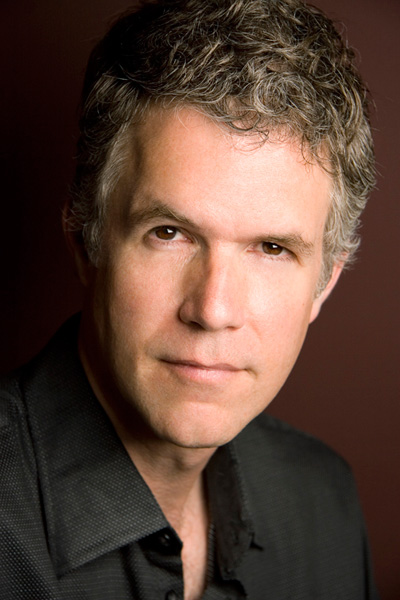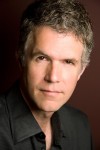
 Before I proceed, I’d like to brace you for the fact that I’ll be telling stories this week that are actually true. I hate to deviate so far from the usual pattern, but in the case of this week’s subject, I couldn’t make this stuff up.
Before I proceed, I’d like to brace you for the fact that I’ll be telling stories this week that are actually true. I hate to deviate so far from the usual pattern, but in the case of this week’s subject, I couldn’t make this stuff up.
Bluegrass artists fear the bluegrass MC.
Most bluegrass fans and the bluegrass MCs themselves probably don’t realize this fear exists, but it does. Since we were discussing recurring bluegrass dreams recently, I’d venture to say that many bluegrass artists wake up in a cold sweat after a particularly vivid nightmare about a tragic introduction from an MC at a bluegrass festival.
I’d like all bluegrass MCs to understand that I know how important and difficult a job this is. I’ve done the job myself on a number of occasions, and I always come away with new appreciation for the people who are good at it. This is exactly why it shouldn’t be pawned off on just anybody who can actually locate a microphone on the stage and successfully talk into the right end of it.
Yes, it’s not an easy job, and yet it’s the easiest part of it that’s so often messed up, the very part that strikes fear in the hearts of bluegrass pickers: the band introduction.
It’s pretty straightforward: Before you introduce an artist on stage, make sure you a) can correctly say the band name, b) have something specific and positive you can say about the band, and c) wait until the band is ready to start their show before you say their name.
The hard part of festival MCing is all the additional work: holding an audience’s attention in between acts, telling a tasteful (or not) joke or two, giving credit to all the sponsors, plugging the vendors, announcing the license plate number of the guy who has blocked in the mayor’s car, preventing him or her from leaving the festival grounds. If you’re doubling as stage manager, there’s the whole issue of keeping the show running on time, and trying to deal with bands that do a medley of The Wreck of the Edmund Fitzgerald and Little Bessie (Stanley Brothers long form) as their last song, following it up with the Orange Blossom Special encore, complete with selections from Fiddler on the Roof worked in, and imitations of cows, sheep and John Wayne on the train tracks. None of this is easy on the poor MC.
So, taking just the band introduction part point-by-point:
1. Correctly say the band or artist’s name:
The sad fact is that most bands get their names at least partially messed up about 40% of the time. I would have thought that “The Night Drivers” is simple enough, and yet we get “Night Drifters,” “Midnight Drivers,” “Night Divers”, and the classic “Night Riders” on a regular basis. The latter one is so common (I guess it’s the confusion with David Hasselhoff’s talking car), that it now gets almost no reaction at all from any of us when it happens, other than a slightly raised eyebrow.
On a side note: my favorite combination of band name screw-ups occurred in print. Early in the life of my band, when Mike Compton was playing mandolin on most of our shows, a local paper referred to us as “Chris Jones and The Night Drifters, featuring Mike Hobbs, formerly of The National Bluegrass Band.” I always console myself that the name Chris Jones is rarely (but not never) messed up. I call Mike Compton “Mike Hobbs” to this day.
I played for a number of years with Special Consensus, and I can tell you that they weren’t planning ahead for MCs’ struggles with the word “Consensus” when they named the band. Just listing the ones I remember off hand, we got “Special Consenus”, “Special Connections,” and everyone’s favorite: “Special Consessions.” Greg Cahill and the band worked many of these misnomers into one of their album covers years ago.
I also played with a band called Whetstone Run (with Lynn Morris, Marshall Willborn, and Lee Olson). We got “Wheatstone Run,” “Wheatstone Rye” (apparently confusing us with Canadian whiskey, or a brand of crackers), “Whetstone Ridge,” and the very awkward “The Whetstone Runs.”
Incidentally, in a post-concert article on the band in a college newspaper, Lee Olson was referred to repeatedly as “Lee Oswald.”
I should admit here that as an MC, I mispronounced Sarah Jarosz’s name, when she was still a kid, when introducing her among a group of young pickers at Wintergrass, and that was after I had asked how to pronounce it. I did try, though, and it was an honest mistake, for which I apologized later. I think what makes it difficult for artists is the feeling that the MCs don’t even care enough to find out or check on the name beforehand. Mistakes will happen, though, no question. It just would be nice if, with a little effort, they happened less often.
2. Have something specific and positive you can say about the band:
It’s not expected that every MC, especially at a mult-artist event like a festival, will know the career highlights of every band or artist they introduce. If you know little or nothing at all about the artist, it’s then simply a matter of asking the artist to provide some information (“So, Mr. Skaggs, this is the first I’ve heard of you. Are you one of the local artists from the area?”). This is also a good way to find out what the artist might like you to say about him/her.
At this point, it’s not a good idea to reject the artist’s information as not valid or interesting. This happened to me once in what has to be one of my more memorable experiences with an MC: We were playing in a midwestern city that will remain nameless. We were the only artist on the bill, but the MC had no idea who we were, so he did the right thing, which was to ask me what he should tell the audience about us. It so happened that I had just recently played on the Conan O’Brien show with Earl Scruggs and the Chieftains (note: this was not a cheap way to work Earl’s name into this column, but the sad event of Earl’s passing away did remind me of this story). So I mentioned this to the MC, and his response was: “Nah, I don’t think our audience would care about that. Anything else?” Somewhat taken aback, I mentioned new releases, recent chart performance, anything I could think of, to which he replied, “No, that wouldn’t interest them. . .(pause for deep thought). . . Have you ever played our festival?” I said, “Well, yes, maybe about 4 or 5 years ago.” Excitedly, the MC answered, “Good. I’ll tell them that.” Who knew that playing the association’s festival years ago was my only career highlight worth a mention. I made plans to rewrite all of our promotional material to reflect that new reality as soon as I got home.
Immediately my amateur MC alarm bells went off, so I decided I’d better make sure that he didn’t bring us on before we were ready. He assured me that he wouldn’t. Then at 7:55, five minutes before the scheduled start of the concert, we were in the green room area tuning up and getting ready to go on, when I heard a stony silence from the stage, and I realized with horror that the MC had not only introduced us early, he didn’t even mention it to us. The audience was left staring at a blank stage. I didn’t actually hear the content of the introduction, but I’m guessing it went something like this: “These guys played our festival a few years back, so I guess they’re pretty good. Here they are: Chris Johns and The Night Riders.”
This made me wish that we could have just used an off-stage mic, so Ned Luberecki could have done our introduction. My mind flashed back to one of Albert Brooks’ old standup routines in the 1970s, in which he was called in at the last minute to open for Richie Havens. He was left to introduce himself off-stage to a hostile audience that didn’t want an opening act. He said, “I gave myself some amazing credits: He’s Johnny Carson’s close personal friend, he’s slept with Ed Sullivan; he knows every Chinese human alive!!” Maybe I needed to try some of those with this MC.
This poor introduction timing brings us to the third item of MC basics.
C: Wait until the band is ready to start their show before you say their name.
Just because you’ve run out of things to say (the car blocking the mayor’s car has already moved), it’s not a good idea to just introduce the band when they’re clearly still getting situated on stage. If you do run out of things to say, and you feel silly just standing there, just wander off the stage for a while, and grab a tasty can of Upper 10 from the backstage cooler.
I also don’t encourage criticizing the band for their slow set-up time. This doesn’t make for good between acts chit-chat. Back when I was playing with Whetstone Run (or “Westward Rub,” if you prefer), we were getting our mics situated, taking all of about 90 seconds to do so, and the MC proceeded to point out that the previous band, an all female family band, was a lot faster at getting ready than we were. He then went on to sing their praises, going so far as to suggest that if we sent them over to the Soviet Union, the Russians would wise up and abandon communism. Now that the MC had managed to solve the problem of the cold war, we were ready, so he just added: “Here they are: Wheatstone Run.” Or maybe it was “Wheatstone Rung” that he actually said. It was a long time ago.
If you have any good stories of really botched up band introductions, or messed up band names, feel free to post them in the comments below. You can include ones that have appeared in print. One of my favorites appeared in The New York Times, when they referred to Bill Monroe’s band as “The Blue Cross Boys.” As a courtesy, please don’t use any MC names, especially if I was the one who botched the introduction.
Next week: cold sore remedies of the bluegrass stars.




